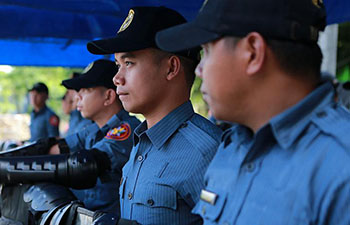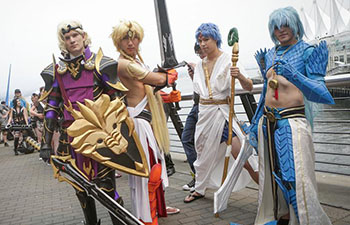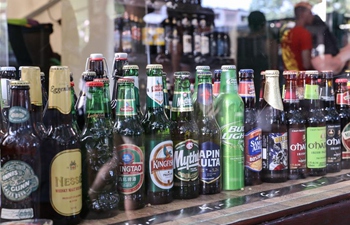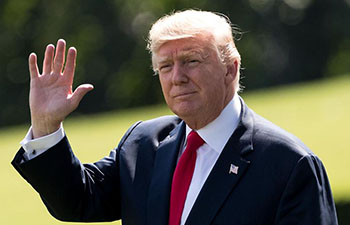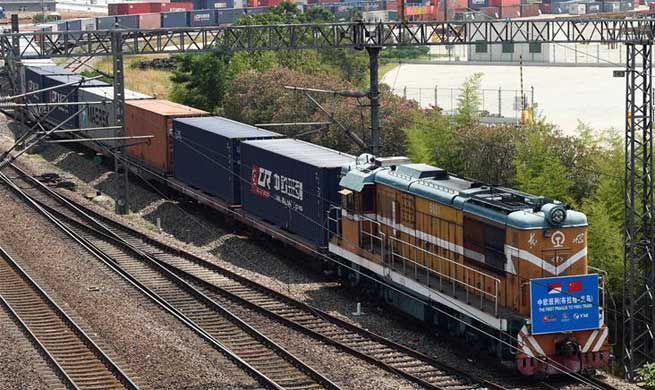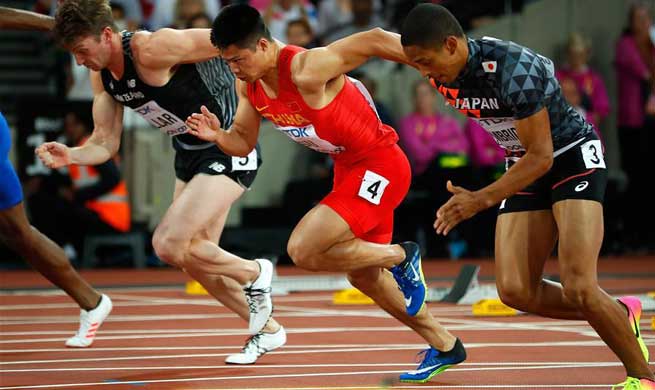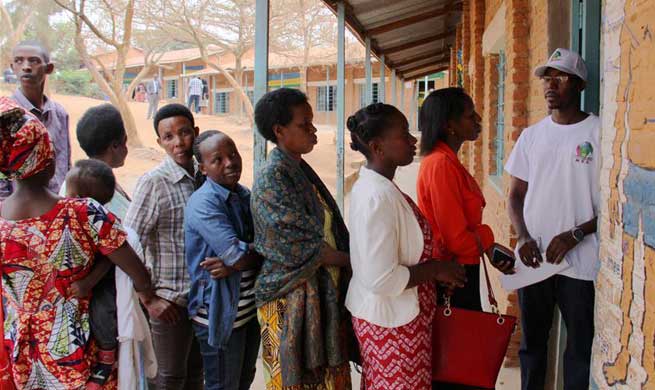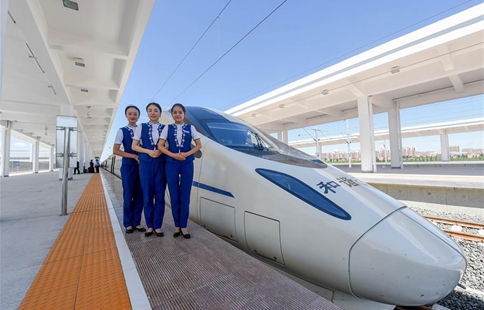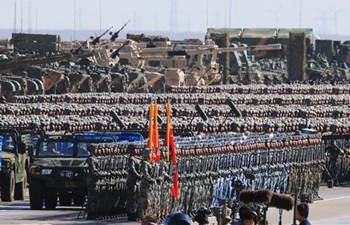By Michael Place
RIO DE JANEIRO, Aug. 5 (Xinhua) -- In his speech during last year's Olympic Games opening ceremony, Rio 2016 organizing committee chief Carlos Nuzman said that Rio de Janeiro would be transformed by hosting the world's biggest sporting event.
A year later, Nuzman's prediction has largely come to fruition.
Despite some challenges - including an ongoing economic crisis - Rio de Janeiro is a vastly different city to the one that won the right to host the first Olympics in South America eight years ago.
A new subway line, a refurbished port zone, express bus lanes and a cluster of world class sporting arenas are just some of the Olympic infrastructure projects that have left a lasting legacy for Cariocas, as Rio's residents are known.
"The subway line has cut my daily commute by two or three hours a day. I've got my life back," said Luciano Gomes, a resident of the Sao Conrado neighborhood in the city's south zone.
As part of a 16 billion US-dollar facelift, Rio is benefitting from new sports training facilities and leisure centers. Moves are also afoot to convert two Games arenas into public schools.
While there are still concerns about water quality in Guanabara Bay, progress has been made to reduce pollution in the city's waterways following the implementation of waste management projects, according to local government officials.
The Rio 2016 organizing committee said the job prospects of thousands of young people improved as a result of training during the Olympics and Paralympics.
"There was a promise to transform Rio and that is exactly what has happened," Rio 2016 communications director Mario Andrada said in an interview with Xinhua this week.
"If you go to Praca Maua [the port zone] you will see a whole new landscape with the Museum of Tomorrow, the Olympic Boulevard and a tram line along Avenida Rio Branco. If you want to go to Barra da Tijuca you can just take the subway. If you want to go to Vargem Grande, you can take a BRT [express bus line]. And if you invite friends to stay in Rio, we doubled the capacity of hotels."
CHALLENGES
But it hasn't all been plain sailing for Rio, which has been jarred by Brazil's worst ever economic downturn and a bribery scandal at state-run oil company Petrobras.
A symbol of the crisis has been the iconic Maracana stadium, now in disuse. The stage for the Rio 2016 opening and closing ceremonies and men's football final is the victim of a row over unpaid bills between the cash-strapped state government - which owns the venue - and operator Maracana SA, whose largest stakeholder, Odebrecht, has been embroiled in the Petrobras corruption case.
"Everybody who saw the Games will remember that the Maracana was in perfect shape," Andrada said. "There has never been a Maracana stadium so beautiful and so full of spectators. We handed it back in perfect shape but what has happened since then is the responsibility of others.
According to Andrada, Rio's economic problems are not linked to the Games and are instead a result of lower oil prices combined with errant government policies.
The Maracana has not been the only Rio 2016 venue left sitting idle. Barra Olympic Park has also been used sparingly in the past year, though there are plans to make it available on a more frequent basis soon.
"Some people have complained that Barra Olympic Park has been abandoned but London's Olympic stadium took three years to re-open," Andrada said. "This park has already been prepared and used. For now it is only being used once a month but that will increase, starting with Rock in Rio next month."
Officials point out that the Maria Lenk Acquatic Center, which is part of Olympic Park, is currently being used daily for training by elite athletes while two of the complex's arenas will soon be converted into schools.
Meanwhile Deodoro Park, the Games' second largest venue cluster, is expected to reopen within weeks. "When it does, it will be Rio's second largest public leisure area," Andrada said.
NEYMAR'S MOMENT
So what of the lasting sporting memories of Rio 2016? A year on, many of the athletic achievements have already faded from the memories of Cariocas, though there is one that will remain with them - and millions of other Brazilians - for years to come.
It was the moment that Neymar's nerves of steel during a penalty shootout at the Maracana delivered Brazil the only major men's soccer title that had eluded them.
"For me, that was by far the highlight of the Olympic Games," 22-year-old engineering student Joao da Rocha said. "The Olympics might not be the most important football title but we waited a long time for it and it made Brazilians very happy to finally win it."
Among other athletes to leave their mark was judoka Rafaela Silva, who won Brazil's first gold medal of the Rio Games to complete a fairytale rise from her upbringing in one of Rio's most impoverished favelas.
The achievements of US swimmer Michael Phelps and Jamaican sprinter Usain Bolt, who added glorious final chapters to their storied Olympic careers, will also not be forgotten.
"In life, it's the good memories that last longest and I'm sure that in the years to come people will realize what a great success these Olympics were," Andrada added.




